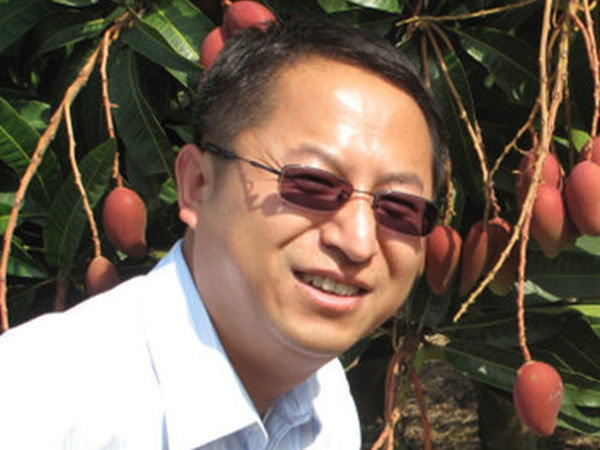Weifeng Zhang
Most celebrated for his work to help revise China’s approach to fertilizer use, Prof. Zhang has dedicated great efforts to addressing agricultural issues at all levels, working with government to shape policy as well as farmers to implement reforms.
With fertilizer use efficiency as low as 27 per cent in China at the turn of the century, Prof. Zhang recognised the contribution of poor nutrient management. He established a national fertilizer database to identify inefficiencies, showing China’s nitrogen fertilizer input was 1.74 greater than crop demand nationwide.
This evidence prompted the government to introduce a “zero growth by 2020” policy for fertilizer use while also reviewing the high subsidies provided for fertilizer products. In 2016, China achieved its first negative growth in mineral fertilizer consumption, meanwhile nitrogen fertilizer use efficiency increased to 37.8 per cent in 2017, meaning an increase in the proportion of nitrogen absorbed by crops.
At the same time, Prof. Zhang also recognised that the adoption of best management practices among Chinese farmers was low. To address this, he and his colleagues established the Science and Technology Backyard (STB) initiative from China Agricultural University in Beijing, where he has been based since his undergraduate studies.
This involved agricultural scientists living in villages among farmers to see first-hand their experiences and challenges, and to gain their trust to share innovations and best practices. Through this initiative, Prof. Zhang and his colleagues identified 10 yield-gap factors, including inappropriate crop variety, low plant density, lack of deep tillage, time and labour constraints, inefficient irrigation systems, sub-optimal harvest time and poor fertilizer management. Subsequently, they designed 10 corrective measures by working together with several dozens of lead farmers.
As a result, farmers were able to achieve up to 97 per cent of their attainable yield, compared to 67.9 per cent previously. Currently, a total of 121 STBs have been established across the country, covering 45 agricultural production systems in 23 provinces.
Prof. Zhang’s work has also contributed to China’s recent drive to address global warming. His research found China’s nitrogen fertilizer production and consumption chain constituted around seven per cent of greenhouse gas emissions from the entire Chinese economy, going on to identify mitigation opportunities. Adoption of more advanced nitrogen fertilizer manufacturing technologies coupled with best nutrient management practices on farms could lower emissions by 202 million tonnes of CO2-eq annually.
Prof. Zhang, who completed both his B.Sc and Ph.D at China Agricultural University where he is now a professor, is also a member of China’s Society of Plant Nutrition and Fertilizer Sciences as well as director of China Society of Natural Resources.
He has received an array of awards from government agencies, industries, and research organizations. Prof. Zhang was recognised by the China Petrochemical Federation for his policy advice, by the Ministry of Education, Soil Society of China, and Natural Resources Society of China for outstanding research and extension work, and by local government for his contribution on farmer services.
Prof. Zhang lives in Beijing where he holds academic, research and education roles in the department of plant nutrition at China Agricultural University.

